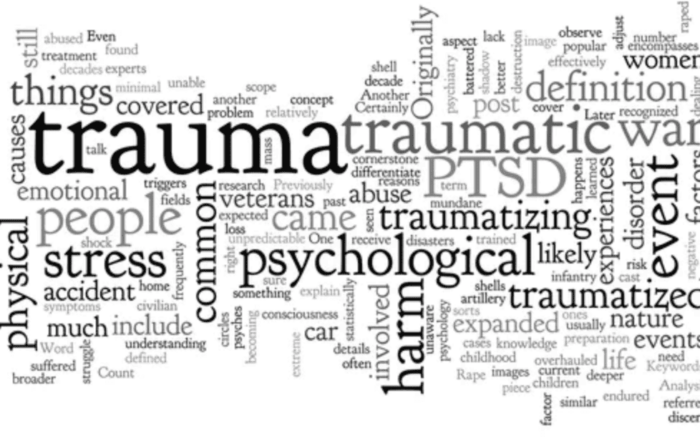Dr. Emily Casanova and Dr. Manuel Casanova consider how the autonomic nervous system may govern anxiety in autism. The speakers detail the autonomic nervous system (ANS) composition and various clinical and behavioral presentations of autonomic dysregulation. They specify disparities in ANS function between autistic and non-autistic individuals and propose atypical autonomic arousal as an underlying cause of anxiety in autism. Casanova discusses the interplay of interoception, autonomic arousal, and emotional states and underscores the importance of holistic data and assessments. They discuss transcranial magnetic stimulation (TMS) as a potential treatment for ANS dysfunction and reiterate the direct relationship to the presentation of anxiety in autism.
Take the knowledge quiz for this presentation HERE
Handouts are online HERE
In this webinar:
1:15 – Introduction to neuroanatomy
4:13 – Autonomic nervous system (ANS) composition and function
6:20 – Autonomic dysregulation in autism
9:20 – Stimming and SIB
13:20 – Study: Small fiber neuropathy
16:35 – Third brand of the ANS
17:55 – Clinical aspects of autonomic dysregulation in autism
19:10 – Common overlaps with anxiety
19:30 – Electrodermal response (EDR) and treatments
24:07 – Anxiety in autism
26:29 – Catatonia and autism
29:20 – Clinical tips for practitioners
32:50 – Interoceptive system and the central nervous system
35:06 – The insular cortex and emotions
36:55 – Autonomic arousal
37:53 – Study: Skin conductance (EDR)
39:00 – Analogies used to understand ANS composition and function
40:15 – The ANS and central nervous system
42:00 – Heart rate measure and analysis
44:19 – Study: TMS on baseline autonomic functions in autism
45:20 – Study: Prefrontal cortex TMS and autistic behaviors
48:24 – Summary, resources, and contact
50:00 – Q&A
Nervous systems introduction
Presented by Dr. Emily Casanova
Casanova discusses the intersection of the central (2:04) and peripheral nervous systems (PNS) (3:23). She explains that the PNS is composed of the sensory and motor branches, and the motor branch of the PNS is further divided into the somatic (SNS) and autonomic nervous systems (ANS). The ANS innervates (supplies nerves to) smooth muscles like those in the glands, cardiovascular system, and gut. It is made of the sympathetic (SYM) and parasympathetic (PSM) systems (4:13). The sympathetic system is associated with the fight, flight, freeze response, and the parasympathetic is connected to the calm response – rest and digest (4:40). These responses, the speaker continues, generally act in diametric opposition – as one goes up, the other goes down.
Autistic individuals commonly exhibit characteristics of autonomic dysregulation such as higher resting heart rate, increased pupil size, and higher respiration rate on average compared to the non-autistic population (6:20). Casanova lists common presentations of autonomic dysregulation (ADR) (8:05) and considers stimming and self-injurious behavior as results of sympathetic hyper- (stimming) and hypo- (self-injury) arousal (9:20). Clinical aspects of autonomic dysregulation in autism vary significantly by individual. Common symptoms include dizziness and fainting, sweating abnormalities, GI difficulties, altered skin conductance, and changes in pupil dilation at slight disturbances (17:55). The presenter outlines a small fiber neuropathy study which found nerve fiber loss in autistic children with reduced sensation (including pain) (13:20). Small fiber neuropathy, she states, has been implicated in altered temperature perception and disorders of GI mobility, sleep, and pain (14:30).
Autonomic dysregulation and anxiety in autism
Presented by Dr. Manuel Casanova
The speaker describes clinical aspects of heart rate variation (21:30), pupillary size (22:25), and sleep problems (23:10) as they relate to autonomic dysregulation in autistic people. He describes the electrodermal response (EDR) as a measure of how the skin responds to electric current that also collects heart rate variability data. In autistic individuals, the EDR is sensitive to shifts in arousal and emotional states (19:30). Casanova considers new EDR technologies that allow for long-term monitoring outside the lab and comments on the potential for using EDR in treating anxiety (20:10).
On average, 40% of autistic people report symptoms of anxiety which is more than double that of the non-autistic population (24:07). Anxiety “is a physiological and emotional response to a perceived threat” that activates the SYM (fight, flight, freeze). For individuals with autism, perceived threats to safety can include a change in routine, lack of sleep, or having to socialize. The speaker defines autonomic arousal as a shifting visceral state that facilitates motor activity via increased cardiac output and blood flow to muscles (36:55). Casanova proposes that atypical autonomic arousal underlies the chronic generalized anxiety experienced by many autistic individuals. He therefore asserts the usefulness of autonomic measures (e.g., autonomic arousal, cardiovascular response regulation) in distinguishing autistic subgroups and specifying treatments (24:07).
Casanova details the interoceptive system and how it interacts with the insular cortex – a substrate for emotional states in the brain (32:50). He posits that emotional difficulties expressed by autistic people may originate in impaired interoceptive processing and misjudgment related to their own arousal levels (36:00).
Treating ANS dysregulation in autism
Casanova outlines how heart rate is analyzed, underscoring that both the SNS and the ANS innervate the heart (42:00). Similarly, he continues, it is critical to remember that the SYM and PSM compose the ANS and that neither could function as a system on their own (39:50). Therefore, to properly assess how the ANS works, electrodermal and cardiac data must be used in tandem (40:15).
The speaker introduces transcranial magnetic stimulation (TMS) and discusses the effect of TMS sessions on the autonomic functions of autistic individuals. Studies reveal that at baseline, autistic people have an accelerated heart rate, lower heart rate variability, and higher EDR activity (44:19) than the non-autistic population. These findings provide a baseline measure of excessive SYM and reduced PSM function in autism (45:03). Results from several clinical trials show that low-frequency TMS to the prefrontal cortex normalizes ANS function in autistic people (45:20). Specifically, positive changes are observed in autonomic parameters directly related to behavioral improvements. Casanova reasserts the potential for using autonomic cardiac regulation profiles and measures of autonomic arousal to distinguish subgroups of autistic individuals and fine-tune treatment (46:24).
The presenter gives the following points as a presentation summary before he and Dr. Emily Casanova open the Q&A session (50:00):
Take-away messages (48:24):
- Anxiety in people with autism must be recognized as directly linked with autonomic dysregulation and excessive sympathetic arousal.
- The ANS is responsible for multiple physiological responses, and dysfunction of this system contributes to the cognitive, affective, and behavioral responses observed in autistic children.
- Atypical autonomic arousal can explain some core symptoms of autism, like repetitive behaviors, social difficulties, avoidance, stimming, and SIB.
About the speakers:


Dr. Emily Casanova is a neuroscientist who has studied autism for more than a decade and, more recently, has been studying the overlap between autism and hereditary connective tissue disorders like Ehlers-Danlos syndrome. One of her current efforts concerns the study of an Ehlers-Danlos phenotype in carriers of Fragile X premutation and autonomic disorders in this population.
Emily Casanova earned her doctorate in Anatomy Science & Neurobiology from the University of Louisville’s Medical School.
Take the knowledge quiz
Can’t see the quiz below? Take it online HERE
Supporting Positive Psychiatry
Free webinar at 1 p.m. Eastern time (US), Wednesday, September 25, 2024 About the speaker: Patricia Wright, PhD, MPH, is Executive Director of Proof Positive: Autism Wellbeing Alliance.
Autism and Trauma
1 p.m. Eastern time (US), Wednesday, June 5, 2024 Dr. Connor Kerns discusses emerging findings on the relationship between trauma and autism. The speaker: Dr. Connor Kerns has
“School distress” rates are elevated among those with autism
Rates of “school distress”—or significant emotional distress related to attending school—are significantly elevated in children with autism spectrum disorders (ASD), according to a new study from the United Kingdom. Sophie Connolly
“School distress” rates are elevated among those with autism
Rates of “school distress”—or significant emotional distress related to attending school—are significantly elevated in children with autism spectrum disorders (ASD), according to a new study from the United Kingdom.Sophie Connolly and colleagues
Sexual Victimization in Autism
In this article: Chronic maltreatment and sexual victimization Trauma and quality of life Risk Factors What can we do? A safer future Resources Despite evidence to the contrary, misperceptions of autistic
Stress and Anxiety Reduction with June Groden, Ph.D
Interview with June Groden, Ph.D. Dr. June Groden is considered one of the pioneers in the field of autism and developmental disabilities. Her primary areas of interest are stress and anxiety and procedures





